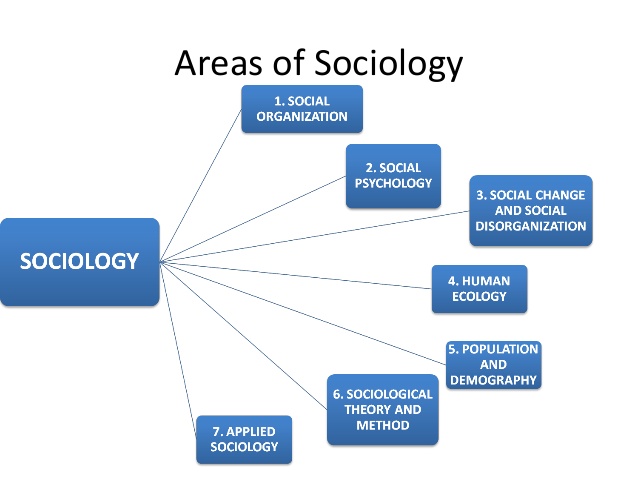Imagine a world without Facebook, Twitter, Instagram, or TikTok. It’s hard to even fathom, isn’t it? Social media has become so ingrained in our daily lives that it’s hard to remember a time before it. But have you ever stopped to think about the sociological implications of these online platforms? How do they shape our interactions, our identities, and even our understanding of the world around us?

Image: imsociologist.blogspot.com
This blog post delves into the fascinating world of social media, exploring its impact on society from a sociological lens. We’ll unpack how these digital spaces influence our social connections, how they can contribute to both positive and negative societal changes, and how they shape our understanding of ourselves and others.
Social Media: A New Frontier for Social Interaction
The Rise of Social Networks
The rise of social media platforms has fundamentally reshaped the way we communicate. Gone are the days of relying solely on face-to-face interactions or phone calls. Now, we have a plethora of platforms that allow us to connect with friends, family, and even strangers across the globe. This has led to a surge in what sociologists call “weak ties” – casual connections that can still be valuable for information sharing and social support.
However, this increase in weak ties comes at a potential cost. Some researchers argue that the constant flow of information and connections on social media can lead to “social overload,” leaving individuals feeling overwhelmed and less connected to their immediate social circles.
Identity Construction in the Digital Realm
Social media platforms also provide us with an avenue for constructing and presenting our identities to the world. Through carefully curated profiles, individuals can project desired images of themselves, showcasing their interests, values, and lifestyles. While this can empower individuals to express themselves in new ways, it also raises concerns about authenticity and the potential for deception.
The pressure to create a “perfect” online persona can lead to feelings of inadequacy and insecurity. Additionally, the constant comparison of one’s own life to the seemingly flawless lives presented on social media can contribute to anxieties about social belonging and self-worth.

Image: essaybulls.com
Social Movements and Collective Action
Social media has proven to be a powerful tool for social movements and collective action. It allows activists to quickly mobilize supporters, share information, and coordinate protests, bringing attention to social issues and galvanizing public opinion. The Arab Spring uprisings, the Black Lives Matter movement, and the #MeToo campaign are all examples of how social media has been used to drive social change.
However, social media can also be used to spread misinformation and amplify existing biases. The echo chambers created by online communities can reinforce existing viewpoints and make it challenging for individuals to engage with opposing perspectives. This can lead to polarization and a decline in civil discourse.
Understanding the Impact: A Sociological Perspective
Sociology offers a valuable framework for understanding the impact of social media on our lives. By examining social interactions, social structures, and power dynamics, sociologists can shed light on the complex ways in which social media shapes our behaviors, attitudes, and beliefs.
For example, sociologists can analyze the role of social media in shaping our consumption patterns, our political views, and our understanding of cultural norms. They can also explore the ways in which social media influences how we perceive ourselves and others, and how it contributes to the formation of online communities and subcultures.
Trends and Developments: The Evolving Landscape of Social Media
The landscape of social media is continually evolving. The emergence of new platforms like TikTok and Clubhouse has transformed how we consume and share information. The increasing use of artificial intelligence (AI) in social media algorithms raises concerns about data privacy and algorithmic bias.
Furthermore, the integration of social media into other aspects of our lives, such as e-commerce and education, is creating new opportunities and challenges for individuals and society as a whole.
Expert Advice: Navigating the Social Media World
While social media offers numerous benefits, it’s important to engage with these platforms consciously and critically. Here are some expert tips:
Focus on Authentic Connections
Don’t get caught up in the pursuit of followers or likes. Instead, focus on building genuine connections with others. Engage in meaningful conversations and share content that reflects your true interests and values.
Cultivate a Healthy Digital Diet
Limit your time on social media and be mindful of the content you consume. Avoid comparing yourself to others and prioritize real-life interactions with friends and family.
Be Aware of the Algorithms
Understand that social media algorithms are designed to keep you engaged, which can sometimes mean exposing you to content that reinforces your existing biases. Be critical of the information you encounter and be open to diverse perspectives.
Promote Positive Social Change
Social media can be a powerful tool for promoting social good. Use your platform to advocate for causes you believe in, raise awareness about important issues, and connect with others who share your values.
FAQ: Common Questions About Social Media
Q: Is social media good for society?
A: While social media has some positive implications, like fostering community and promoting social change, it also has downsides like cyberbullying, privacy concerns, and the spread of misinformation. Whether it’s “good” or “bad” depends on how we use it.
Q: How can I be more mindful of my social media use?
A: Set time limits for your usage, be mindful of the content you consume, and pay attention to how you feel after spending time on platforms. Don’t be afraid to take a break or delete apps.
Q: Is social media addictive?
A: While not everyone experiences social media addiction, some people may find it difficult to control their usage. The constant notifications, likes, and updates can be highly stimulating, making it easy to fall into a pattern of excessive use.
Q: What is the future of social media?
A: The future of social media is likely to involve even greater integration with other aspects of our lives, more personalized experiences, and an increased focus on privacy and data security.
Sociology Blog
Conclusion: A Call to Action
Social media has become an undeniable force in our lives. Its influence on our interactions, identities, and social movements is undeniable. As we navigate this ever-evolving digital landscape, it’s crucial to adopt a critical and informed perspective, leveraging social media’s potential for good while mitigating its risks.
Are you interested in exploring other sociological perspectives on social media? What are your thoughts on the role of social media in today’s society?



/GettyImages-173599369-58ad68f83df78c345b829dfc.jpg?w=740&resize=740,414&ssl=1)


